Complete Guide to RV AC Short Cycling: Troubleshoot & Solve Issues
Ever wonder why your RV air conditioner seems to be running a marathon, starting and stopping every few minutes? Hi, I’m John Parker, with two decades of pro HVAC experience under my belt, and I’m here to guide you through the often misunderstood issue of RV AC short cycling.
This sneaky problem turns relaxing road trips into sticky, frustrating situations, leads to soaring energy bills, and risks potential costly repairs. But don’t fret, I will simplify these complex technical issues into bite-sized, easy to grasp solutions.
In this article, we’ll delve into the common causes and fixes for RV AC short cycling. You’ll walk away armed with knowledge, ready to ensure your trips remain smooth and your AC unit serves you well for years to come.
What is RV AC Short Cycling?
Definition and Symptoms of Short Cycling
RV AC short cycling is a pesky little issue where your air conditioner decides to turn on and off frequently, usually every 2 to 3 minutes. This habit prevents the system from completing a standard cooling cycle, leaving the RV uncomfortably warm. Let me break down the key signs for you:
- Frequent On/Off Cycles: If your AC unit is constantly flicking on and off, it’s a major red flag for short cycling.
- Cooling Inefficiency: Instead of the cozy cool you expect, the temperature inside your RV stays stubbornly high. It’s like your AC is working against you!
- Increased Energy Usage: Those frequent cycles mean your AC is gobbling up more energy, which can lead to unpleasant surprises on your utility bill.
- Unusual Noises: Hearing odd sounds from your AC? That’s another symptom of trouble. It could sound like a cough or a sputter, indicating the unit isn’t running smoothly.
Short cycling can really mess with your comfort level and the efficiency of your RV’s air conditioning system. By catching these symptoms early on, you’re in a good position to address and troubleshoot the problem before it snowballs into a bigger issue. Remember, spotting the signs early can save you a lot of hassle down the road!
Consequences of Ignoring RV AC Short Cycling
Ignoring RV AC short cycling can lead to a cascade of problems that affect both the functionality of your air conditioning unit and your overall comfort. Understanding these consequences will help emphasize the importance of prompt attention and intervention.
Increased Energy Use
When your RV air conditioner short cycles, it turns on and off frequently, never completing a full cooling cycle. This constant stopping and starting consumes more energy than a unit running a full, efficient cycle. You’ll see a significant hike in your energy usage and utility bills.
Excess Wear on the AC System
Frequent cycling places excessive strain on the internal components of the AC system. Parts such as the compressor and fans experience continuous wear and tear, reducing their lifespan. The system isn’t given adequate time to rest and cool down, expediting this wear.
Potential Damage and Complete Breakdown
Prolonged short cycling can cause significant damage, eventually leading to a complete breakdown of the AC unit. The continuous stress on the system can result in major mechanical failures, which are often costly and time-consuming to repair. If ignored, the likelihood of needing a full system replacement increases.
Discomfort
One of the direct consequences of RV AC short cycling is ineffective cooling. The system’s inability to complete a proper cycle means your RV will not reach or maintain the desired temperature, leading to discomfort, especially during peak summer months.
Higher Utility Bills
Since short cycling causes the unit to work harder and less efficiently, you’ll notice a steady increase in your utility bills. The financial impact can be substantial over time, far outweighing the cost of resolving the issue promptly.
Premature Wear and Larger Carbon Footprint
Short cycling contributes to premature wear and tear on the air conditioning unit, shortening its overall lifespan. Additionally, the increased energy consumption due to inefficiency results in a larger carbon footprint, negatively impacting the environment.
Ultimately, RV AC short cycling is more than just an inconvenience—it is a sign of underlying issues that, if left unaddressed, can lead to expensive repairs, inefficient system performance, and unwelcome increases in energy consumption and costs. Taking timely action to diagnose and fix the root causes will help maintain the longevity and efficiency of your RV AC unit.
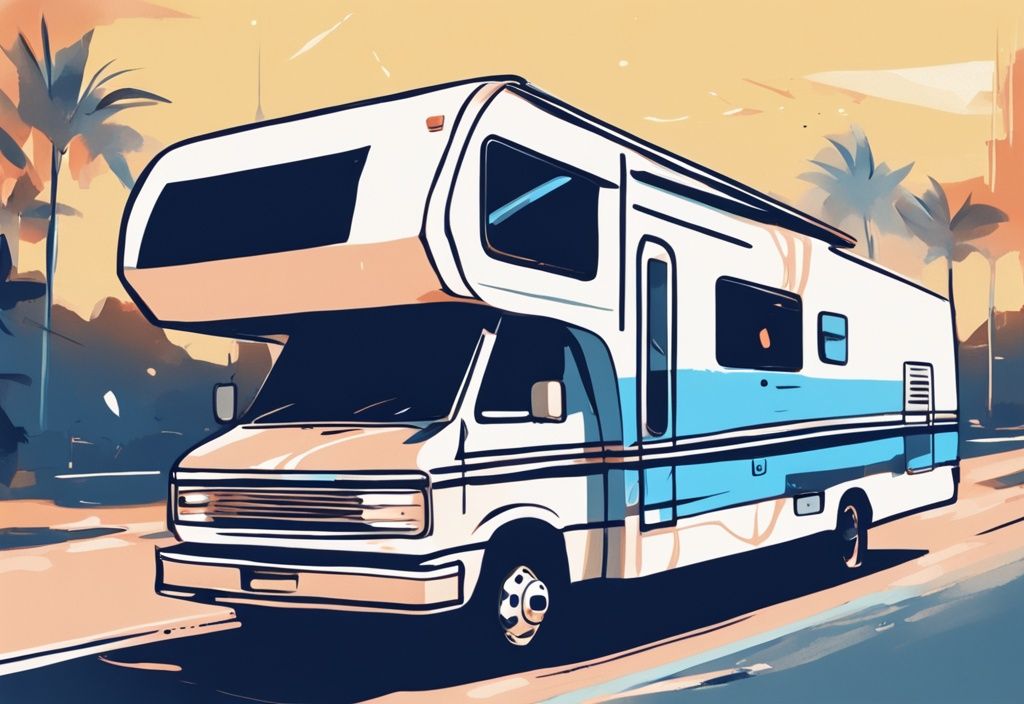
Common Causes of RV AC Short Cycling
Evaporator Coil Freezing Due to High Humidity
One pesky issue that often wrecks havoc on RV AC units is the freezing of the evaporator coil, especially in humid conditions. When the coil freezes, it can throw off the usual operation of the AC system. This scenario usually triggers the freeze sensor, which then shuts off the compressor to avoid damage. This protective measure is good, but it leads to the dreaded short cycling. You might notice this problem is more frequent at night when the humidity tends to be higher.
Blocked or Dirty Air Filters
A common culprit behind RV AC short cycling is blocked or dirty air filters.
These filters, if not cleaned or replaced regularly, can restrict the airflow so severely that the system overheats and shuts down prematurely. It’s like a car engine choked by a clogged air filter, unable to breathe properly. Keeping those air filters clean can prevent overheating and ensure your HVAC system runs smoothly.
Insufficient Airflow and Plenum Issues
You’ll find that insufficient airflow often stems from issues within the plenum, like poor insulation or sealing. If the cold air plenum isn’t properly separated from the return air plenum, it hinders adequate airflow and causes short cycling. Make sure the AC fan cycles with the compressor and not continuously running. This synchronization is crucial for managing airflow effectively.
Low Refrigerant Levels
Low refrigerant levels spell trouble for your RV AC system, making it work harder than it should. This extra effort leads to overheating and, subsequently, short cycling. If your refrigerant levels are low, it’s likely due to a leak, and that’s something a professional needs to handle. Ignoring it can cause more severe problems down the road.
Faulty Thermostats and Poor Thermostat Placement
Thermostats that are faulty or improperly calibrated can give you inaccurate temperature readings, throwing the AC cycles into chaos. Additionally, where you place your thermostat matters. Placing it near windows, direct cool air, or fluctuating temperature sources can mess up its reading, leading to premature shutoffs. For instance, if you’re concerned about whether bees can get in through window AC units, you might want to consider adjusting your thermostat placement accordingly.
whether bees can get in through window AC units Proper placement and evaluation for replacement are critical for reliable AC performance.
Voltage Issues
Your RV AC unit relies on consistent voltage to function correctly. If voltage levels drop below 108V at the breaker panel, you’re in for an insufficient power supply, causing short cycling. Ensuring you have a stable and adequate voltage supply helps maintain the efficiency of your AC. It’s a bit like making sure your car’s battery isn’t running low—essential for smooth operation.
High-Pressure and Low-Pressure Problems
Pressure issues within the AC system, whether high or low, can kick in internal safety mechanisms that lead to short cycling. These problems are best diagnosed and repaired by a professional technician. Getting the pressure issues resolved not only stops the short cycling but also prevents further damage to your AC unit.
How to Prevent RV AC Short Cycling
Regular Maintenance and Cleaning
Inspecting and Cleaning AC Coils
Regular maintenance is key to preventing RV AC short cycling. Start by inspecting and cleaning both the external and internal AC coils using a no-rinse coil cleaner. Clean coils ensure optimal heat exchange efficiency and prevent dirt buildup, which can block airflow and trigger short cycling. If you’re experiencing issues with your Chevy Equinox, refer to this guide on how to reset the climate control system for troubleshooting steps. Making this a routine part of your maintenance can save you from a lot of headaches down the road.
Checking and Changing Air Filters
Air filters are essential for keeping your RV AC running efficiently. Check and replace them at least once every 30 days, or more often if you’re using the AC heavily. Dirty filters restrict airflow, causing the system to overheat and shut off prematurely. Keeping air filters clean ensures smooth operation and helps prevent RV AC short cycling.
Proper Insulation and Sealing
Proper insulation and sealing in your RV’s ductwork and plenum are crucial to avoiding short cycling. Make sure the cold air plenum is fully sealed from the return air plenum. This keeps the airflow balanced and prevents warm and cold air from mixing, which can cause temperature swings and short cycling. Also, check duct insulation for any leaks or gaps to stabilize your system’s performance.
Upgrading to Accurate Digital Thermostats
Old mechanical thermostats often give inaccurate temperature readings, leading to erratic AC cycling. Upgrading to a digital thermostat offers better temperature control. Digital thermostats are more precise and reliable, reducing the chances of RV AC short cycling. Plus, their programmable features can help keep your RV at a comfortable temperature consistently.
Ensuring Correct Thermostat Placement
Placing your thermostat in the right spot is critical to prevent short cycling. Avoid locations exposed to direct cool air, windows, or areas with fluctuating temperatures. Incorrect placement can cause false readings, leading to premature shut-offs and short cycling. Ensuring proper thermostat placement helps maintain consistent temperature control and efficient AC operation.
By integrating these strategies into your regular maintenance routine, you can significantly reduce the chances of RV AC short cycling. This not only prolongs the life of your unit but also ensures a comfortable environment in your RV. Proactive care and timely upgrades play a vital role in the overall efficiency and durability of your RV air conditioning system.
Troubleshooting RV AC Short Cycling
Experiencing your RV AC unit constantly turning on and off? This issue, known as short cycling, can be both frustrating and damaging to your system. Let’s dive into some common causes and practical solutions to keep your AC running smoothly.
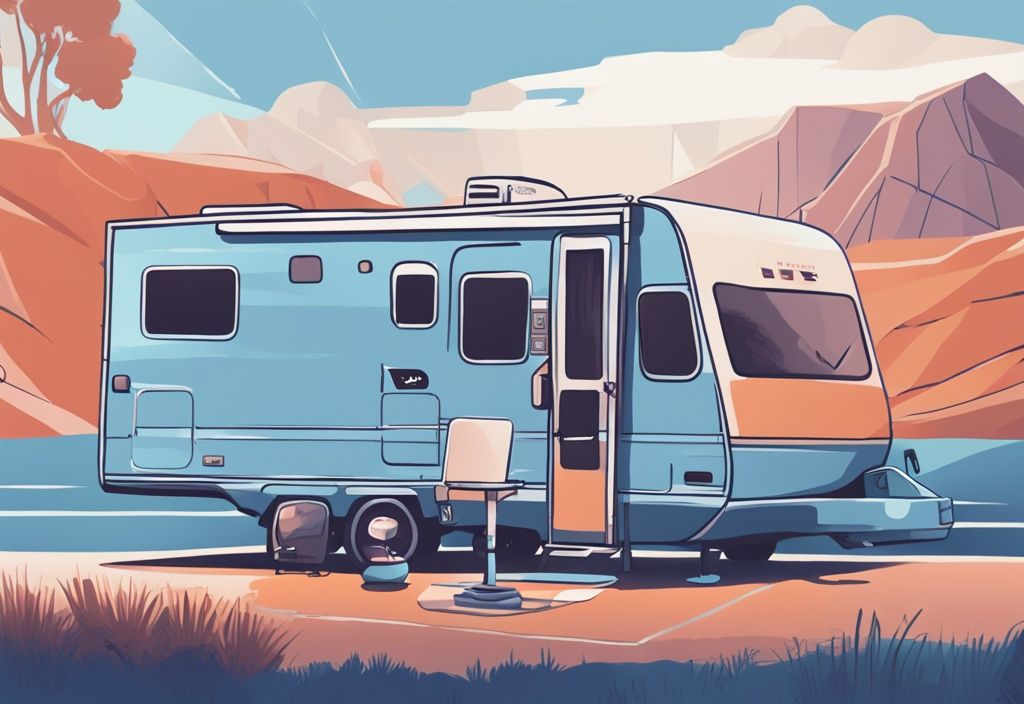
Initial Checks and Basic Solutions
Setting Thermostat Fan to ‘ON’
One of the simplest solutions to prevent RV AC short cycling is to set your thermostat fan to ‘ON’ instead of ‘AUTO.’ By keeping the fan continuously running, you’ll ensure consistent air circulation within your RV. This can help avert coil freezing, keeping the system functioning smoothly and reducing the chances of your AC shutting off prematurely due to cold air pooling around the thermostat.
Checking and Replacing Capacitors
Capacitors play a crucial role in the functioning of your RV AC unit. They provide the initial jolt needed for the compressor and fan motor to start. If you have a faulty capacitor, it can lead to frequent shutdowns and erratic cycles. Regularly inspect the capacitors for any signs of swelling or leaks. If you find one that’s faulty, replace it promptly. This is a relatively inexpensive and straightforward fix that can significantly reduce the occurrence of short cycling.
Verifying Voltage Consistency
Voltage issues are a common cause of RV AC short cycling. It’s essential to ensure that your power source is delivering a consistent voltage, ideally at 108V or higher. Fluctuations or drops in voltage can cause the AC system to turn off unexpectedly, as it fails to maintain the power required for operation. Use a voltmeter to check the voltage on both legs of the power source. If you detect inconsistency, consider using a voltage regulator to maintain a stable power supply and ensure the proper functioning of your AC unit.
Advanced Troubleshooting Steps
Inspecting Cold Air and Return Air Plenums
For a more in-depth examination, inspect the cold air and return air plenums. Ensuring proper sealing and insulation around these areas can prevent air leakage or the mixing of cold and return air. Improperly sealed plenums can lead to insufficient airflow, causing the system to work harder and potentially leading to short cycling. Address any insulation gaps or seal breaks immediately for optimal airflow.
Investigating Compressor Issues
If your compressor isn’t entirely malfunctioning but exhibits intermittent running, further investigation is necessary. Compressors are pivotal in the cooling process, and issues here can cause frequent shutdowns. Diagnose the compressor thoroughly, checking for wiring issues, worn parts, and the overall health of the component. While some fixes might be DIY, more complex issues may require a professional technician.
Evaluating Thermal Overload Protections
Thermal overload protections, like the klixon type, are safety mechanisms that prevent overheating by shutting down the system when temperatures rise too high. If these components are triggering frequently, it might indicate underlying issues such as excessive heat or poor ventilation around the AC unit. Inspect both the internal and external thermal overload protectors, ensuring they reset after cooling down. Evaluate your system’s cooling capacity and rectify ventilation problems to avoid repeated shutdowns.
When to Seek Professional Help
Consulting HVAC vs. RV Technicians
Dealing with RV AC short cycling can be tricky, and knowing whom to call—an HVAC specialist or an RV technician—can make a significant difference. HVAC specialists excel at diagnosing and solving complex air conditioning problems. They’re well-versed in the ins and outs of the electrical and mechanical components of AC units, ensuring thorough troubleshooting and precise repairs.
Meanwhile, RV technicians bring a broader skill set that’s tailored to the unique systems within RVs. They handle everything from plumbing to electrical systems, including HVAC. They understand the specific challenges that come with RVs, such as confined spaces and variable power sources. If your issue involves the overall RV system or overlaps with other aspects of the RV, an RV technician could be the best choice.
For the best results, consider bringing in an HVAC specialist for in-depth AC diagnostics and repairs, and an RV technician for checks on the broader RV systems. This combined expertise can give you a well-rounded solution to RV AC short cycling.
Understanding Manufacturer’s Warranty
Before diving into repairs for RV AC short cycling, it’s crucial to check the manufacturer’s warranty. Understanding what’s covered can save you both time and money. Warranties often cover specific parts, labor, and service calls, but the details vary widely among manufacturers.
First, find your warranty information, which could be in the owner’s manual or available on the manufacturer’s website. Carefully read through the terms and conditions, keeping an eye out for any exclusions or required service intervals that might affect your coverage. Some warranties will require regular maintenance performed by certified technicians to stay valid, so knowing these details upfront can prevent unexpected expenses.
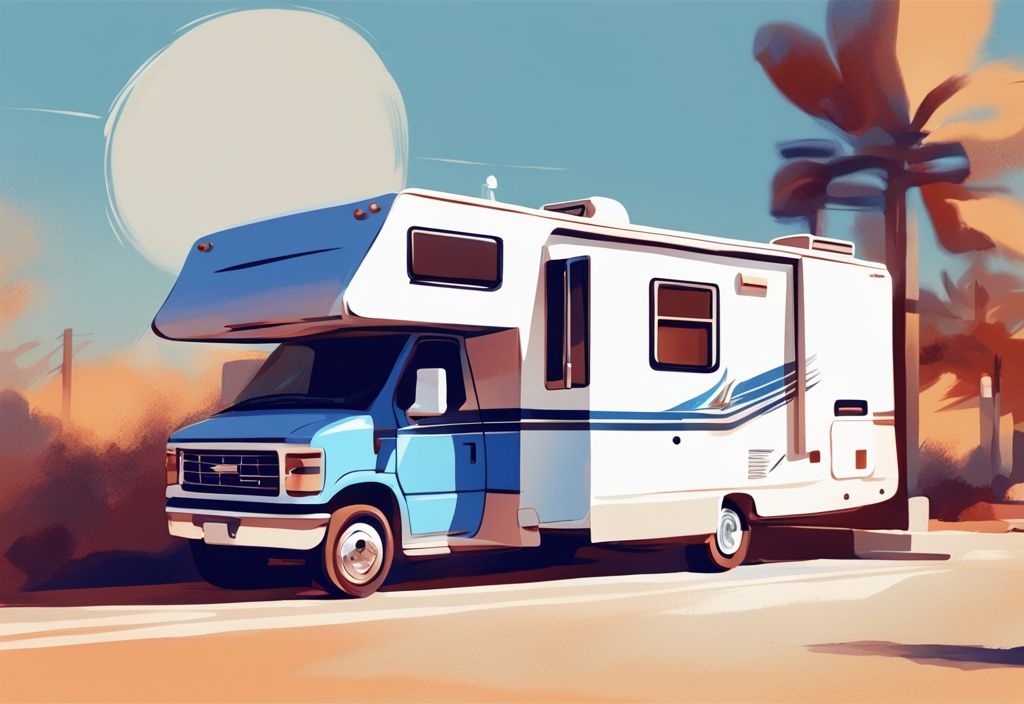
Being well-informed about your warranty lets you make smart choices about when and where to seek professional help. If the issues causing the short cycling are covered, you might be able to get professional repairs done at little or no cost. Always confirm the specifics of your warranty with the manufacturer or authorized service centers before moving forward.
Conclusion
Understanding, preventing, and troubleshooting RV AC short cycling is vital for maintaining your air conditioning system’s efficiency and longevity. Short cycling, where the AC turns on and off frequently without completing a full cooling cycle, can lead to several problems if left unchecked.
Proper identification and timely resolution of short cycling issues can greatly enhance the performance of your RV air conditioner. Regular maintenance and proactive measures can prevent common causes like dirty air filters, low refrigerant levels, and faulty thermostats from disrupting the cooling process. By examining and addressing these potential problems, you can maintain a steady, comfortable temperature inside your RV and reduce energy consumption.
Moreover, understanding the significance of voltage consistency and proper insulation can help in preventing RV AC short cycling. Ensuring that all components of your AC system are in optimal condition, including the evaporator coil, capacitors, and thermal overload protections, is essential for saving on potential repair costs and extending the life of your unit.
When issues are beyond basic troubleshooting, seeking professional assistance can provide a more detailed diagnosis and appropriate repair solutions. Whether consulting with an HVAC specialist or an RV technician, understanding your manufacturer’s warranty can also offer financial advantages by covering certain repair expenses.
In summary, addressing RV AC short cycling through regular inspections, maintenance, and timely troubleshooting not only ensures efficient operation but also avoids costly repairs and increases the overall longevity of your air conditioning system.
FAQ
Get straightforward answers to your common queries about RV AC short cycling, brought to you by John Parker, a veteran HVAC professional with decades of hands-on experience.
What is RV AC short cycling?
RV AC short cycling happens when your air conditioner constantly switches on and off without finishing a full cooling cycle, often every 2 to 3 minutes. This issue can make your cooling less efficient and even damage your system over time.
Why does the RV AC short cycle more at night?
Nighttime can be tricky because higher humidity levels cause the evaporator coil to freeze. When this happens, the freeze sensor shuts off the compressor to protect it, leading to the AC cycling on and off rapidly. I’ve seen this issue countless times during nighttime service calls.
How often should I clean the AC coils?
Keeping those coils clean is crucial for your AC’s performance. I recommend cleaning them regularly, preferably during your routine maintenance checks. A no-rinse coil cleaner works wonders and simplifies the job.
Can a faulty thermostat cause short cycling?
You bet! A faulty or miscalibrated thermostat can give incorrect readings, making your AC cycle erratically. I’ve found that many short cycling issues trace back to thermostat problems. Sometimes, it’s a simple fix like replacing batteries or recalibrating.
What should I do if my RV AC continues to short cycle despite troubleshooting?
If you’ve tried the usual fixes and still face short cycling, it’s time to call in professional HVAC service. It could be a deeper issue, and a technician can diagnose it accurately. Also, check your manufacturer’s warranty—it might cover the repair costs.
Is it expensive to fix RV AC short cycling issues?
Fixing short cycling can range in cost, but regular maintenance and timely troubleshooting can save you money in the long run. Ignoring the problem can lead to more significant and expensive repairs down the road. From my experience, a stitch in time really does save nine.
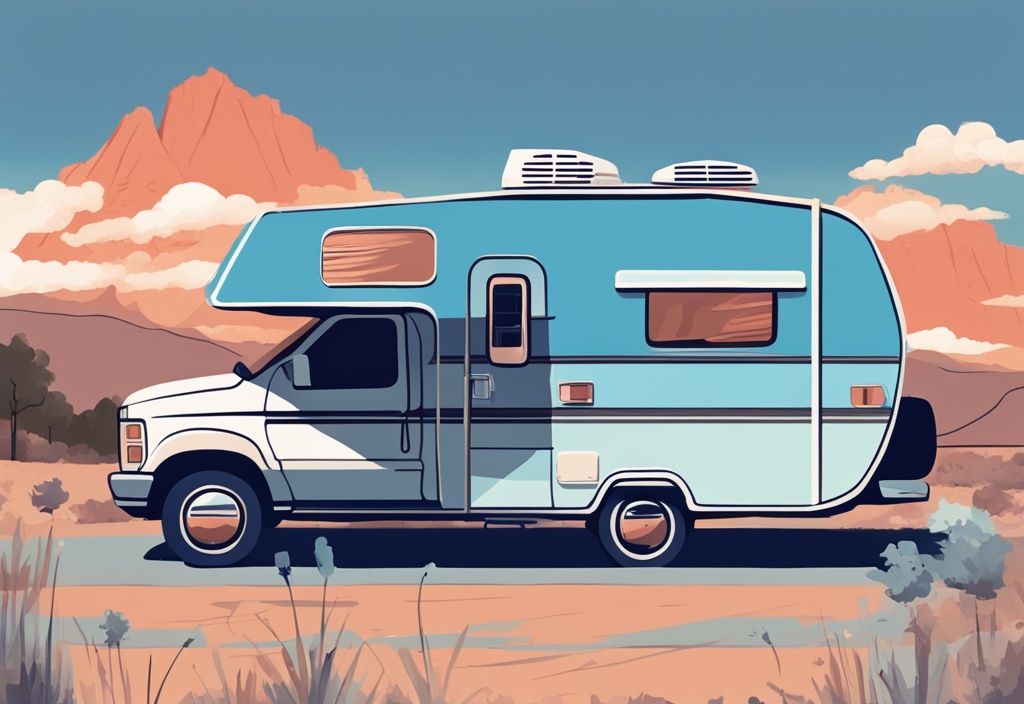
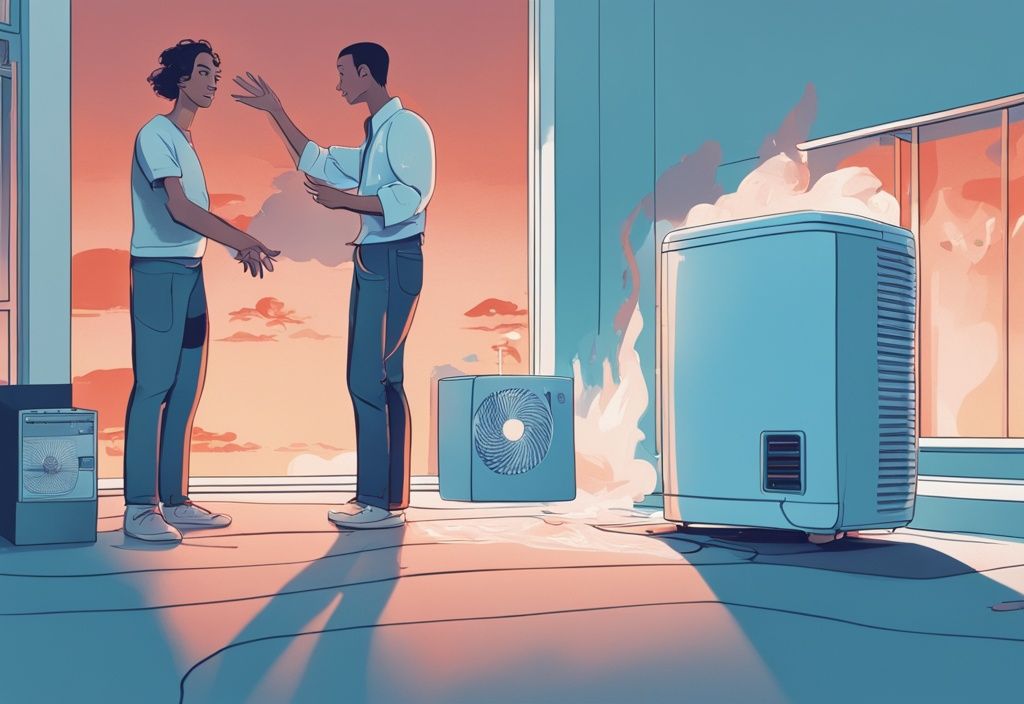
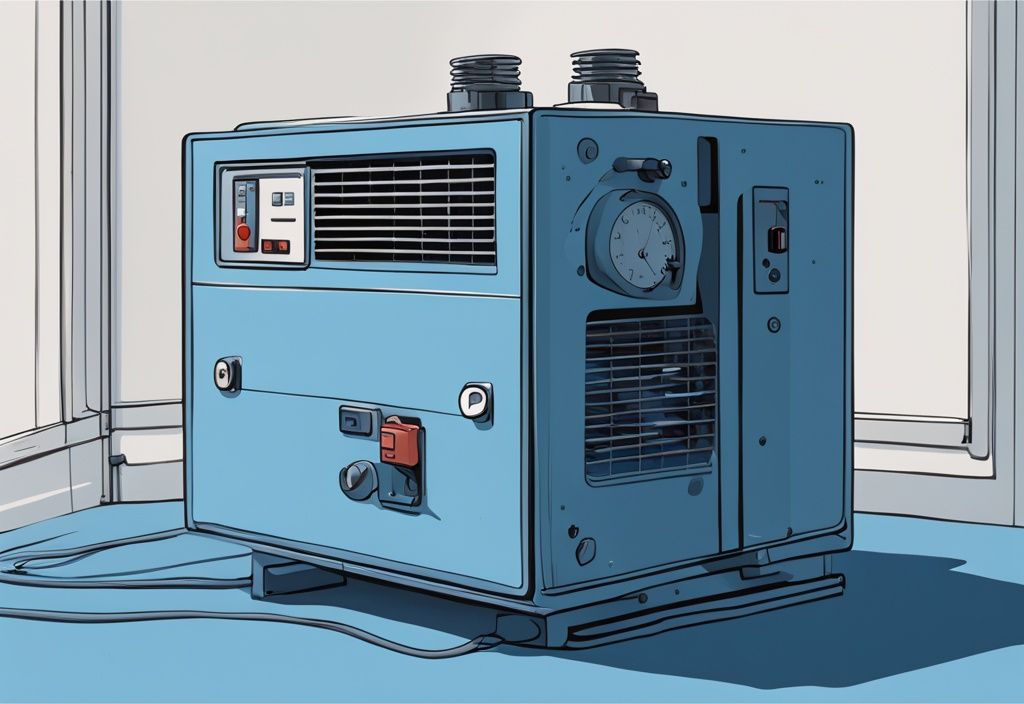
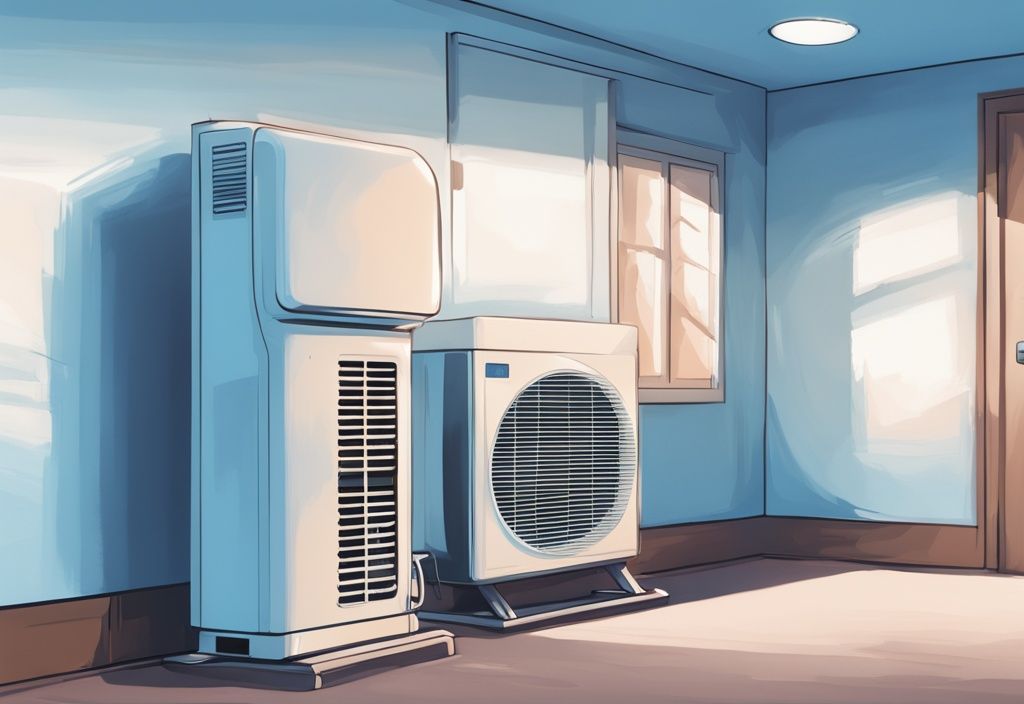
Post Comment